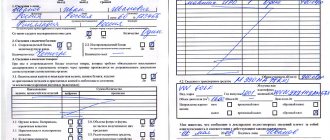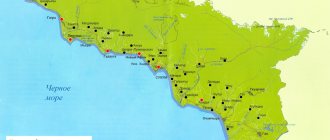Baggage transportation
September 23, 2019
Many travelers returning from abroad bring various gifts and souvenirs on the plane, which may include exotic plants. A bouquet of unusual flowers or a living plant in a beautiful flowerpot will delight the recipient, but before buying such a gift, you should check with the carrier about the possibility of carrying and conditions for transporting plants on the plane.
In the article we will look at the features of transporting bouquets of flowers and potted plants by plane on domestic and international flights, what restrictions exist on their import into the Russian Federation and export abroad, how to properly pack the cargo, and what documents will be required.
Rules and conditions for transporting plants and seeds on an airplane
Transportation of plants on an airplane is possible only if certain conditions established for perishable products, which include flowers and other types of vegetation, are met.
10 very useful products for air travel
Rules for transporting plants on board:
- Carrying fresh cut flowers, potted plants and seeds is only permitted on direct flights.
- Plants can be transported to Russia from foreign countries, as well as when exported outside the country, if they have a phytocertificate. This document is not required for domestic flights.
- Plants of rare exotic species can only be transported if there are additional documents permitting export from the country and confirming the sanitary and epidemiological safety of the products.
- Proper packaging of the plant is required.
- The passenger must ensure access to the transported plant during pre-flight inspection.
What is a phytocertificate
Many countries allow the import of plants into their territory only if they have an international phytosanitary certificate. This document is issued in the store where floral products are purchased. The validity period of the phytocertificate is 15 days.
Packaging Features
Flowers in flowerpots with soil cannot be transported on an airplane. The transport of plants in ceramic pots is also prohibited. Proper packaging will help solve this problem. The passenger needs to carefully remove the root system, clean it from the soil and wrap it in a wet cloth. Next, the plant is packaged in a tight bag or cardboard box.
Another option is replanting it in a plastic pot or cardboard container and filling the container with a special substrate. Such a flowerpot can be transported in the passenger cabin as hand luggage.
Freshly cut flowers in bouquets can be carried as hand luggage in the cabin. It is recommended to wrap plant stems in newspaper or plastic bag.
Is it true that you can’t import seeds from abroad?
A resident of the Slonim district, Evgenia Stanislavovna, contacted the editor: “Very soon we will have to sow a vegetable garden. This year I decided to buy good seeds, I found some in Poland and Lithuania and I want to bring them back in the near future. But the neighbor says that you can’t do that. They say you can get a fine if you move seed across the border. Is it true?"
images.by.prom.st We addressed the question asked by the villager to the Ministry of Agriculture and Food. The press service of the department explained: the import of seed material is controlled by the Main State Inspectorate for Seed Production, Quarantine and Plant Protection. Specialists of this organization serve on the borders of the republic and carefully check the seeds.
The entire area of movement of seed material across the border is regulated by several regulatory documents. These are Resolutions of the Council of Ministers No. 156 of December 17, 2012 and No. 961 of November 8, 2013, as well as the Law “On Seed Production” and the Law “On Plant Protection”.
Transportation of flowers and plants by plane in Russia
Russian airlines allow passengers to transport bouquets of cut flowers to domestic destinations. As a rule, one passenger can take on board only one bouquet of flowers without restrictions on its size.
Flowers in pots with substrate and plant seeds can also be transported across the territory of the Russian Federation.
In hand luggage
Aeroflot, UTair, S7 and Ural Airlines allow free transportation of flowers in the passenger cabin in addition to hand luggage.
On Pobeda Airlines planes you can also carry flowers in the cabin, but you will have to pay extra for hand luggage at a special rate. We also suggest that you familiarize yourself with hand luggage on an airplane: dimensions and weight.
In luggage
Plant seedlings and flowers with roots are transported in general baggage if they have the correct packaging (bags, newspaper or cardboard).
MUMILAND.RU
For the attention of gardeners, summer residents and, in general, all flora lovers, we present information about the rules for the import and export of plant material, seedlings, plants and plant parts from Russia to Finland and from Finland to Russia. As with any crossing of the state border, the transportation of plants is also strictly regulated and compliance with the necessary rules will help make your trip easy and bringing only positive emotions.
Importing plants to Finland from Russia
The Phytosanitary Act regulates the import of plants and their parts Finland The main task is to prevent the spread of dangerous plant pests in the flora and crop production of the country. You can find out/clarify from the Finnish Food Safety Agency (Evira, www.evira.fi) what inspections are required and what permits are required to import plants into Finland . You can also find the necessary information on the website of the Finnish Customs Service (www.tulli.fi).
A passenger may bring into Finland from Russia for his own use without a phytosanitary certificate:
- 5 nursery plants along with a clod of soil (in particular trees, bushes and ornamental perennials, with the exception of plants carrying fire blight strains*
- 5 indoor plants and green plants (Attention! CITES restrictions on orchids)
- 3 kg of bulbs, tubers and flower rhizomes
- 3 kg fresh citrus fruits. Other fruits, berries and vegetables can be brought with you for your own use.
- 500 grams of seeds
- 20pcs. cut flowers, as well as other types of plant products that do not require a phytosanitary certificate
*Plant carriers of fire blight, the import of which is prohibited, are: serviceberry, chaenomeles, cotoneaster, hawthorn, quince, Japanese medlar, apple tree, pear tree, medlar, photinia of David, rowan.
It is prohibited to import plants from nurseries and potted crops without presenting a phytosanitary certificate. The importation of endangered plant species, in particular many species of orchids, requires a CITES permit or is completely prohibited. It is prohibited to import table and seed potatoes into the country, as well as soil (soil for plants), compost and manure.
The import and export of endangered species of wild flora and fauna, as well as the trade and disposal of them, is controlled using the so-called. CITES Agreements. Its purpose is to protect endangered species of wild flora and fauna from extinction. The import and export of species of flora and fauna, as well as products from them, requires a permit (www.tulli.fi; www.ymparisto.fi).
Export of plants from Finland to Russia
The fundamental document in Russia is the Federal Law of July 15, 2000 N 99-FZ “On Plant Quarantine”. Most of the regulatory documents on veterinary and phytosanitary supervision can be found on the pages of Rosselkhoznadzor, including a list of regulated products subject to quarantine phytosanitary control at the customs border of the Customs Union and the customs territory of the Customs Union (www.fsvps.ru).
A passenger can import from Finland to Russia only plants that have not been shortened (bouquets of cut flowers or dried twigs). At the border you will need to undergo appropriate sanitary control. The import of regulated plant products into the territory of the Russian Federation in cases provided for by the rules and regulations for ensuring plant quarantine is permitted if there is a phytosanitary certificate from the exporting country. The phytosanitary certificate in Finland is issued by Evira, where you can also get additional information about the export of plants and other goods. It is prohibited to import plant products and soil contaminated with quarantine organisms into Russia. Such cargo will be confiscated at the border. We advise anyone who intends to import plants or parts of plants from Russia to Finland and export plants or parts of plants from Finland to Russia to first consult with the quarantine service and Evira.
Alina Sinisalo and Anu Koivisto, MTT Economic Research, Finland, Trade Route newspaper
Similar materials
- “Finland may limit the import of tobacco products from Russia”
- “Customs checkpoints on the border between Russia and Finland”
- “Crossing the border with Finland with pets”
- “Crossing the Finnish border by car, basic requirements, useful information”
- “Crossing the border of Finland, transporting goods, luggage and currency”
What happens if plants and bulbs are found during an inspection?
In Russia, there are no fines for transporting plants in hand luggage or general luggage. Plants or bulbs found during inspection without a certificate will be confiscated by the customs service.
Rare plant species are transported on airplanes by collectors from the plant growing community only with permission from a research institute.
Thus, flowers can be transported on an airplane. The main thing is to comply with all the carrier’s requirements and not violate the laws of the country where the flight is planned.
The Federal Customs Service explained the delays of trucks with flowers at the border by checking for “gray schemes”
Representatives of the flower business previously sounded the alarm. They talk about colossal losses and warn about an increase in prices for the most popular goods by March 8
Photo: EPA/TASS
The Federal Customs Service explained the delays of trucks with flowers on the border with Belarus by catching violators. Meanwhile, market participants talk about colossal losses of perishable goods and warn about the rise in price of bouquets by March 8th.
According to representatives of the flower business, dozens of trucks are stuck on the border with the union state. The Business FM radio station has already talked about this problem. The FCS explained the situation as follows:
“The measures currently being taken are aimed at identifying and suppressing facts of illegal import of products and do not affect the activities of law-abiding participants in foreign trade activities. The importation of flower products into Russia using gray schemes does not lead to a reduction in retail prices at retail outlets, but only contributes to the enrichment of dishonest importers.”
Half of all imports of flower products to Russia come from Belarus, similar to the famous Belarusian shrimp. In most cases, the importer is the Netherlands; flowers are cleared through customs at the border with Belarus, which is purely geographically more convenient for deliveries to Russia. Moreover, Minsk at one time abolished VAT on the import of flowers. And then the goods follow to the Russian border, which passes as if they were produced in Belarus, essentially without taxes.
According to media reports, tax savings can result in up to 10 thousand dollars per truck. It is not known exactly how much Belarus earns from this, but local media estimated this business at $300 million. At the same time, Russian flower growers complained that due to Belarusian dumping, non-competitive conditions were being created.
Now customs suddenly decided to put the millions of flowers in order. Since February 4, Belarusian trucks with perishable goods have not been allowed out of inspection points, says Igor Rossamakhin, director of the wholesale flower company Arcus Flowers.
Igor Rossamahin, director of the wholesale flower company Arcus Flowers “On the eve of March 8, when there are large volumes of deliveries, they decided to stop the flow of cars and conduct searches for weeks. It is clear that these are perishable products. All the packages of documents are normal, the herbal control is normal, everything is in order - and then all the cars in a row are put under inspection. All this was probably prepared in advance. As I understand it, Russian customs wants to regain this market so that everything in Russia is customs cleared. And, accordingly, taxes went to the Russian budget, not the Belarusian one. Instead of attracting the same clients with some benefits, as the Belarusians did in their time, by providing a discount, quick registration of the car and everything else, it turns out that ours were simply driven into a stall.”
Recently, importers have been forced to change all contracts, review logistics, reissue documents and transport products to Russia, bypassing Belarus. For example, some flowers are supplied through Lithuania.
But all this comes out to be much more expensive, and some small suppliers may not be able to survive such costs. Market participants talk about rising prices for flowers and predict an increase in the price of bouquets by March 8th. In addition to the usual holiday component - double payment for the work of the florist, rent, utilities - now the price of the bouquet will include the downtime of hundreds of trucks stuck at customs with spoiled products.
Domestic manufacturers assure that it is not in their interests to increase price tags. Alexander Litvinenko, member of the board of directors of the Greenhouses of Russia association, comments :
— The market is already overheated in terms of the purchasing power of the population. Therefore, if you raise prices, you may simply not sell all the flowers. It is better to leave the same prices as they were, instead of artificially increasing them, but sell all your goods.
— What to expect in terms of prices at the nearest flower stall?
— Compared to, say, last March 8, there will be an increase of within 10%, maximum 20%. This is due to exchange rates. Some slight increase in price will be associated with this unclear situation at customs. For importers (and our flower market imports about 85%) who find themselves in this situation, prices will, of course, rise.
According to market participants, on March 8, bouquets will rise in price on average to 1.5 thousand, or even two thousand rubles.
Add BFM.ru to your news sources?
How to transport indoor plants in winter?
You need to put a couple of plastic bottles filled with hot water in the box: they will serve to heat this kind of container. Purchased potted plants are placed between these bottles, then the space between the pots is sealed with paper, and the lid of the box is sealed with tape.
Interesting materials:
How much is the pension supplement for working in the Far North? How many safety groups for working at height are defined by these Rules? How long does it take to get a writ of execution for work? How many kg can a man lift at work in Ukraine? How long is employee data stored after dismissal? How many kilograms can a man lift at work? How many kilograms can you lift at work? How many years does an SSD last? How many years should a woman work before retirement? How many people work in the police?











